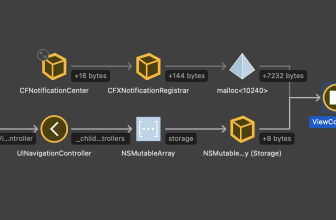All too often, the reward for good work is more work. You should know when the measure is full and how to behave in such a case. […]
The IT industry is known for its overtime affinity and sometimes almost impossible to meet deadlines. Employees who allow themselves to be exploited in this environment run the risk of succumbing to burnout – among other things.
Meanwhile, studies have also shown that employees who do their work with joy and passion are much more likely to be exploited in the job: “overachievers” are therefore more often asked for unpaid overtime, more often neglect family and private life for the job or complete tasks that have nothing to do with their actual job description. It is also striking that some managers actually see extra work as a reward according to the survey results and assume that people who like to do their job also voluntarily bring more performance.
The following six signs may indicate that you are being exploited in your job-including appropriate recommendations for action to counteract this.
1. Only work, no fun
If your former dream job feels like a dead end and takes up most of your life, it’s time to talk to your supervisor. If the manager in question is a difficult – or even manipulative – contemporary, do not be deterred by this. Say what frustrates you and give extensive feedback. Make sure to document your conversations afterwards. If a conversation with nothing helps, contact the human resources department or talk to another executive you trust.
2. Lack of drive
If the work-life balance goes wrong, the risk of burnout increases-especially in the startup environment. Also says Chris Nicholson, CEO at AI ecosystem provider Skymind. Where there is particularly high competitive pressure, this also applies to many employees – especially the particularly enthusiastic ones, says the manager. “It is not unlikely that supervisors who have no idea about the internal processes will overwhelm their teams with impossible deadlines. Overtime or even night shifts can be conducive to a latent sense of exploitation.“
To counteract this, the CEO recommends an evaluation of the status quo. In Nicholson’s opinion, you should ask yourself the following questions:
- Are there still aspects of the job that appeal to me?
- Do I deal with things / topics that move and / or motivate me?
- How has my job and its stress level evolved over time?
- Do management decisions make sense?
- Are promises kept by management?
- Am I in an honest dialogue with my employer about the status quo?
- What does my job cost me and is it worth it?
- Do I still have enough time for my family?
- Do I still have enough time for myself?
“Everyone should be clear about their own goals. Nevertheless, another job might suit them better, which does not necessarily make them rich, but leaves enough time for them or a family,“ says the Skymind CEO.
3. Unhealthy Deadlines
The fact that some IT projects go far beyond the healthy level with their deadline races is nothing new-and it is not always the fault of the manager, Nicholson knows: “In some parts of the industry, for example the gaming industry, it is already common among product teams to use various stimulants to stay creative and meet deadlines. This is the Prime example of an alarm signal.“
In some cases, however, such problems are not due to evil intent, but to arrogance and ignorance. Startups in particular often have to contend with extreme resource scarcity. In combination with inexperienced founders who have put on too many hats themselves and barely estimable timelines, Nicholson says. “In such cases, it is quite normal to do the work of several people while rushing towards an invisible finish line.“
4. In the dark
If employees do not know what they are up to, they are more likely to feel unfairly treated. Jeff Atkinson, CIO at cloud service provider INAP, is also convinced of this. The IT manager recommends three basic measures to managers:
- Keep an eye on the roles of employees and their importance for the big picture;
- create a healthy balance between everyday work and team wellness measures to drive motivation and productivity;
- Do not forget soft skills such as time management, communication, etc.
However, it is not recommended for managers to deny problems or to sweep them under the table: “This does not solve the problems. Improperly deployed or overburdened employees will sooner or later be burned. Make sure that every team member can express their opinion openly, ” CIO Atkinson warns.
5. Management Disconnect
Often problems arise even when managers have no idea what problems their teams are actually trying to solve. In the worst case, this can lead to indifference, which widens the gap between and team, says Syed Ahmed, co-founder and CTO of Tara AI, Anbiter of an AI development platform.
“In such an environment, developers may not be appreciated enough. In addition, they are faced with impossible projects,“ the manager knows. Executives, on the other hand, would have to make an effort on their way up to keep an eye on everything in order to prevent entire teams from tumbling towards burnout. “Reading the reports of the project managers is not enough. If you manage teams, you should not ignore the human factor, ” Ahmed appeals.
6. More work, same money
If one of your colleagues resigns, you take over his duties, but you do not receive recognition or an appropriate remuneration, it is justified to question this. A salary increase is not the only option for employers – additional vacation days or one-time bonuses could also be considered, according to Julia Kanouse, CEO of the Illinois Technology Association: “As with any negotiation conversation, it is essential that you document your additional work and prepare to substantiate your claims with good arguments.“
This post is based on an article from our US sister publication CIO.com.
*Paul Heltzel writes for our sister publication CIO.com. Previously, he wrote as a writer for Discovery News, National Geographic, and PC World.














